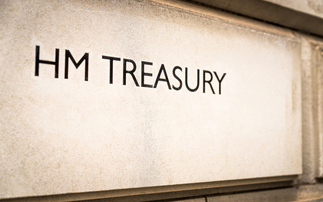The Bank of England has cut interest rates for the sixth consecutive month today, reaching a new record low of just 0.5%.
It then revealed it would expand the amount of money in the UK economy by £75bn, via a process known as quantitative easing, in an attempt to boost bank lending. The UK has never implemented a plan of this type before but central Bank chiefs hope increasing the amount of money in circulation will revive the economy. Quantitative easing does not involve printing new money and, instead, will see the Bank buy assets - such as corporate bonds and government securities (gilts). It will create cash "out of thin air" to buy the assets, thereby boosting the balance sheets of UK companies and,...
To continue reading this article...
Join Professional Adviser for free
- Unlimited access to real-time news, industry insights and market intelligence
- Stay ahead of the curve with spotlights on emerging trends and technologies
- Receive breaking news stories straight to your inbox in the daily newsletters
- Make smart business decisions with the latest developments in regulation, investing retirement and protection
- Members-only access to the editor’s weekly Friday commentary
- Be the first to hear about our events and awards programmes







